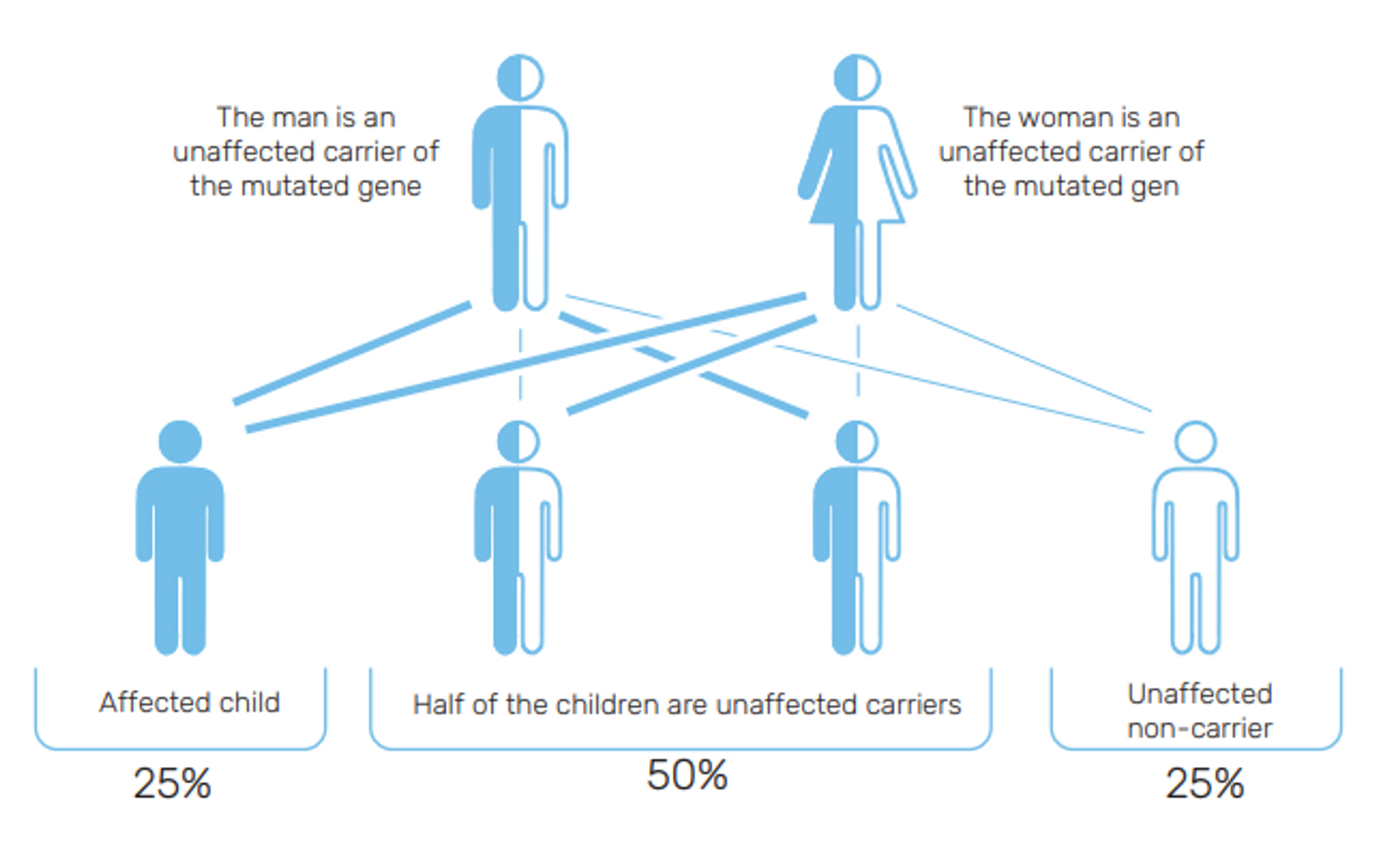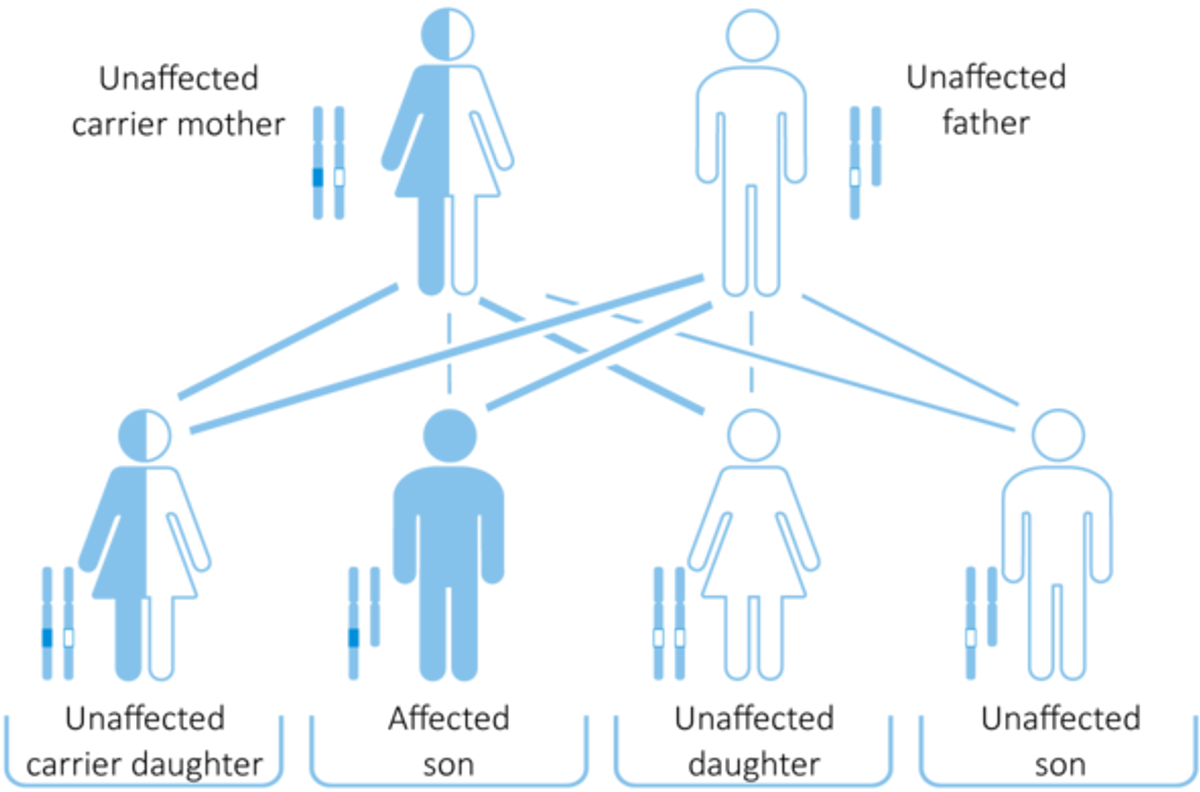EGG DONOR SCREENING
The egg donor screening is a genetic test for individuals wishing to donate eggs for use in assisted pregnancy treatments. The test screens for genetic mutations associated with prevalent recessive diseases that might be passed down from the donor.

This screening provides crucial knowledge in any risks associated with using the donor for future fertility treatment. Knowing the underlying genetic risks of a potential donor can help the clinic make informed decisions and exclude potential risk factors from the donor program.
HEREDITARY DISEASES
Hereditary diseases are inherited through genetic material from one generation to another. There are different types of hereditary diseases. In this analysis, we focus on two types:
1. RECESSIVE GENETIC DISEASE
Two copies of the same mutated gene, one in the woman and one in the man, cause the disease.

2. X-LINKED RECESSIVE HEREDITARY DISEASE
In boys: One copy of the mutated gene is sufficient to cause the disease. In girls: Two copies of the mutated gene are needed to cause the disease, but it is more likely the woman inherits only one copy of the mutated gene and will be a healthy carrier.

THE PANEL EGG DONOR INCLUDES:
- SMN1, CFTR, and DFNB1 for variants leading to spinal muscular atrophy, cystic fibrosis, or non-syndromic congenital hearing loss and deafness.
- 12 X-linked genes:
- Adrenoleukodystrophy (ABCD1)
- Choroideremia (CHM)
- Alport syndrome (COL4A5)
- Duchenne muscular dystrophy (DMD)
- Ectodermal dysplasia (EDA)
- Hemophilia A and B (F8)
- X-Linked Thrombophilia (F9)
- Emery Dreiffuss muscular dystrophy (FHL1)
- Fragile X syndrome (FMR1)
- Fabry disease (GLA)
- Hunter syndrome (IDS)
- X-linked juvenile retinoschisis (RS1)
AMPLEXA OFFERS:
- A standard panel that includes screening for mutations in the SMN1, CFTR, and DFNB1 genes for variants leading to spinal muscular dystrophy, cystic fibrosis, or non-syndromic congenital hearing loss and deafness.
- A screening approach based on the sequencing of customized gene panels with a complete analysis of the relevant genes and in-depth reporting suited for your needs, following the standards and guidelines for the interpretation of sequence variants set by the American College of Medical Genetics and Genomics and the Association for Molecular Pathology. Based on these, Amplexa Genetics reports following disease classes:
- Class 4 -Probably pathogenic
- Class 5 - Pathogenic
- If you wish to include or exclude genes from the screening panel, please contact us for a solution matching your specific needs.
Reference: https://pubmed.ncbi.nlm.nih.gov/25741868/
We recommend the test:
IN THE EVALUATION OF EGG DONOR CANDIDATES

HOW TO DO IT?


